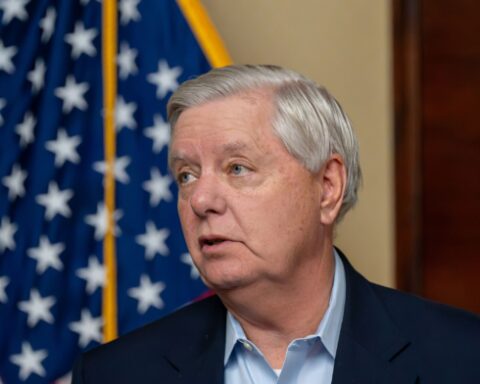France’s political dysfunction reached a new low on Monday, as President Emmanuel Macron reportedly saw his second government in less than a year collapse under the weight of a no-confidence vote, underscoring what critics say is his failure to impose fiscal discipline or restore stability.
Prime Minister François Bayrou, a centrist ally of Mr. Macron, resigned after just nine months in office when 364 lawmakers in the 577-seat National Assembly backed a motion of censure.
The vote is being seen not only as a rejection of Mr. Bayrou’s leadership, but as another indictment of Mr. Macron’s inability to build consensus or confront France’s ballooning debt.
“You have the power to overthrow the government, but you don’t have the power to erase reality,” Mr. Bayrou told lawmakers before the vote, describing the country’s finances as “a silent, underground, invisible, and unbearable hemorrhage.”
France’s public debt has surged from €2.2 trillion before Mr. Macron’s election to €3.3 trillion this year — about 114 percent of national output.
Its deficit, at 5.8 percent last year, far exceeds European Union rules. Mr. Bayrou had proposed €44 billion in cuts, including the elimination of two public holidays, in an effort to bring the deficit down to 5.4 percent. But those measures ignited outrage from left-wing parties and street movements vowing to “block everything.”
Whomever Mr. Macron names next will face a fractured National Assembly and a looming budget deadline. France must pass a new budget by December even as protests are planned against any spending cuts.
Mr. Macron has ruled out dissolving Parliament and calling new elections, after a disastrous 2024 snap poll left his party weakened and the chamber divided into irreconcilable blocs.
The chamber’s breakdown is stark: Mr. Macron’s centrist coalition and conservative allies, with 210 seats, oppose tax increases. A bloc of left-wing parties, with 192 seats, refuses to cut France’s costly welfare programs.
Marine Le Pen’s far-right National Rally and its allies, holding 138 seats, want to slash funding for the European Union.
“The tripolarization of politics is making the country difficult to govern,” said Benjamin Morel, a professor of public law at Paris’s Panthéon-Sorbonne University. “As long as we cannot overcome this political problem, we will only be applying band-aid solutions.”
Markets have taken notice. France’s borrowing costs have surpassed even those of Greece, and Fitch Ratings is due to issue a review of the country’s credit standing this week.
The stakes for Mr. Macron are high. A left-leaning government could reverse his controversial pension reform that raised the retirement age. Socialist lawmaker Boris Vallaud declared, “It’s now the left’s turn to govern. We are ready, let him come and get us.”
Mr. Macron’s inner circle has floated names like Defense Minister Sébastien Lecornu, Justice Minister Gérald Darmanin and Finance Minister Éric Lombard as possible successors to Mr. Bayrou. But even they would struggle to assemble enough support to pass spending cuts.
National Rally President Jordan Bardella was blunt about Monday’s outcome. “We are not the ones overthrowing this government, it is this government that has decided to fall on its own accord,” he said.
For many in France, the political theater feels all too familiar. Less than a year ago, former Prime Minister Michel Barnier issued a grim warning moments before his own ouster. “Listen to me,” he said, “this reality is here to stay, and it won’t disappear by the magic of a motion of censure.”
[READ MORE: Deputy Prime Minister’s Tax Scandal Rocks Labour Government]







